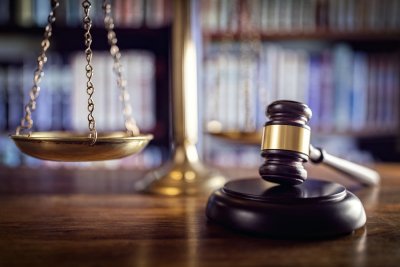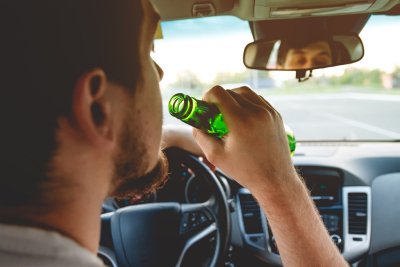-
What Really Happens During a Personal Injury Jury Trial?
After filing a car accident lawsuit in the Baltimore area, your injury attorney and the counsel for the defendant will likely negotiate a settlement. Most accident injury lawsuits are settled out of court. You’re not obligated to accept a settlement offer, of course, but if you do, it means you’ll accept a sum of money in exchange for dropping the lawsuit. If a settlement arrangement doesn’t work out, your lawyer will talk you through each step of the trial process.

Jury Selection
The first stage of a personal injury trial is the selection of the jurors. This is the process by which potential jurors are questioned about matters that might unfairly influence the verdict, such as their ideological beliefs, affiliations, and past experiences. The judge will have the opportunity to ask questions. Both parties have a limited number of challenges that they can use to dismiss certain jurors.
Statements
When the trial starts, your injury attorney and the lawyer for the defendant will make opening statements. These are brief, oral arguments that do not involve presenting physical evidence or questioning witnesses. Similarly, toward the end of the trial, both attorneys have the opportunity to make closing statements, which are final arguments.
Evidence
The main phase of the trial is the questioning and cross-examination of witnesses. The attorney for each party has the opportunity to call witnesses to the stand and question them under oath. After an attorney has questioned his or her own witness, the other attorney can question that witness in a process called cross-examination. Afterward, the first attorney may decide to question his or her witness again. This is known as re-direct examination, and it’s an opportunity to try to correct any problems that may have developed during the cross-examination. During the questioning of witnesses, the attorneys can also introduce physical evidence, such as medical records, photographs, or surveillance footage.
Jury Deliberation
Once all the witnesses have been questioned and the attorneys have made their closing arguments, the judge issues instructions to the jury. The jurors go to a private area for deliberation. This is a process that allows the jury to discuss the case and the evidence, and vote on a verdict. Jury deliberation may be very quick, lasting only an hour or two, or it may go on for days or weeks. If the jury does not find in your favor, you may decide to talk to your attorney about filing an appeal.
““
-
Common Questions About Insurance and DUI Convictions
Getting arrested on suspicion of drunk driving is a serious matter. A DUI conviction can lead to many more problems than simply a fine and some time behind bars. If you’re convicted, you could face long-term consequences, including higher insurance rates and problems finding a job due to your criminal record. It’s in your best interests to get in touch with a DUI lawyer in Baltimore as quickly as possible. Remember not to answer any of the police officers’ questions about your alcohol use until you speak with a lawyer.

What insurance problems may occur after a DUI conviction?
It’s common sense that your motor vehicle insurance premiums would increase considerably after a DUI conviction. After all, drunk drivers are often repeat offenders, and having this type of criminal history substantially increases the risk of a major car wreck. Some people convicted of DUI find that their current auto insurance carrier refuses to renew the policy, forcing them to look elsewhere for a company that will accept a questionable driving history. But beyond auto insurance, DUI convictions can have an impact on other insurance policies, such as life insurance. After a DUI conviction, you may have a hard time finding a life insurance carrier that will insure you. If you do, you can expect to pay high premiums.
Why do life insurance companies care about my criminal record?
Life insurance companies care about your DUI conviction because it speaks to your overall health and safety. They know that drunk drivers are likely to be repeat offenders, which means there is a possibility that you will die in an alcohol-related crash before a term life policy expires. Drunk drivers are also considered to be risk-takers who may be more likely than the average person to engage in other dangerous behaviors. Furthermore, convicted drunk drivers are more likely than the average person to have existing health problems that may shorten life expectancy, such as cirrhosis or liver cancer.
What about life insurance policies that don’t require a medical exam?
Many convicted drunk drivers assume that life insurance policies that do not require a medical exam will extend coverage at a reasonable premium. However, even if a carrier doesn’t require an exam, it will still check your DMV record.
-
Preventing Back Injuries at Work
One of the most common causes for declining work productivity and missed work days is back pain. Workers’ comp law allows Baltimore employees to receive workers’ compensation benefits for injuries sustained while on the job , but avoiding these injuries is certainly preferable. Watch this featured video to learn how you can protect your back while lifting heavy items.
This video suggests estimating the weight of the item and identifying the best gripping areas before you try to lift it. You should also make sure you have a clear walking path to the item’s destination. If the item is too heavy or bulky, it’s a good idea to ask someone else to help you. Or, use a mechanical lifting aid. Keep the item close to your body as you lift and carry it. And remember to contact a workers’ comp attorney promptly if you do become injured and you have concerns about your rights under workers’ comp law.
““
RECENT POSTS
categories
- Uncategorized
- Worker's Compensation
- Attorney Fees
- Auto Accident Injury Whiplash
- Attorney Review
- Personal Injury
- Social Security Disability
- DUI
- Workplace Injuries
- Auto Accident
- Workers Compensation Claims
- Permanent Disability
- Infographic
- Drunk Driving
- Wrongful Death
- Works in Maryland
- Uninsured Motorists
- Motorcycle Crashes
